
The Enchanting Heights of Jabal Amman
Jabal Amman, a historic and cultural gem in the heart of Amman, Jordan, offers tourists a delightful blend of old-world charm and modern vibrancy. Known for its steep streets lined with charming houses and lush greenery, Jabal Amman is a must-visit for those looking to experience the authentic spirit of the city. Begin your journey at Rainbow Street, a lively thoroughfare brimming with cafes, restaurants, and art galleries. This street is not only a hub for social gatherings but also a living museum showcasing the area’s rich history and contemporary culture. Don't miss the chance to visit the Jordan River Foundation showroom to admire exquisite local crafts. Explore the historic houses scattered throughout the neighborhood, such as the Darat al-Funun art gallery, housed in beautifully restored buildings. These houses offer a glimpse into the architectural heritage of Jabal Amman and often host art exhibitions and cultural events. For a touch of spirituality, visit the King Abdullah I Mosque, a stunning example of Islamic architecture. The mosque, with its distinctive blue dome, is open to visitors and provides a peaceful respite from the bustling streets. Jabal Amman is also home to the Wild Jordan Center, where you can learn about Jordan's natural reserves and enjoy a meal with a breathtaking view of the city. The neighborhood's elevated position provides panoramic vistas, making it a perfect spot for photographers and nature lovers alike.
Local tips in Jabal Amman
- Visit Rainbow Street in the late afternoon to enjoy the vibrant nightlife and stunning sunset views.
- Wear comfortable shoes; the steep streets and uneven pavements can be challenging.
- Check out local event listings for cultural activities at Darat al-Funun and other historic houses.
- Carry a camera; the panoramic views from Jabal Amman are perfect for photography enthusiasts.
- Respect local customs when visiting the King Abdullah I Mosque; modest dress is required.
The Enchanting Heights of Jabal Amman
Jabal Amman, a historic and cultural gem in the heart of Amman, Jordan, offers tourists a delightful blend of old-world charm and modern vibrancy. Known for its steep streets lined with charming houses and lush greenery, Jabal Amman is a must-visit for those looking to experience the authentic spirit of the city. Begin your journey at Rainbow Street, a lively thoroughfare brimming with cafes, restaurants, and art galleries. This street is not only a hub for social gatherings but also a living museum showcasing the area’s rich history and contemporary culture. Don't miss the chance to visit the Jordan River Foundation showroom to admire exquisite local crafts. Explore the historic houses scattered throughout the neighborhood, such as the Darat al-Funun art gallery, housed in beautifully restored buildings. These houses offer a glimpse into the architectural heritage of Jabal Amman and often host art exhibitions and cultural events. For a touch of spirituality, visit the King Abdullah I Mosque, a stunning example of Islamic architecture. The mosque, with its distinctive blue dome, is open to visitors and provides a peaceful respite from the bustling streets. Jabal Amman is also home to the Wild Jordan Center, where you can learn about Jordan's natural reserves and enjoy a meal with a breathtaking view of the city. The neighborhood's elevated position provides panoramic vistas, making it a perfect spot for photographers and nature lovers alike.
Iconic landmarks you can’t miss
Amman Citadel
Experience the rich history and breathtaking views at Amman Citadel, a must-visit historical landmark in the heart of Jordan.
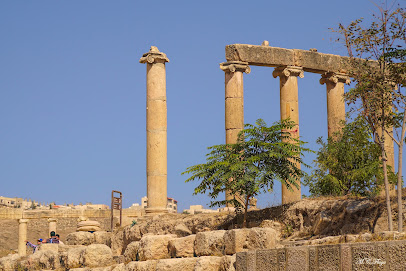
Roman Theater
Discover the awe-inspiring Roman Theater in Amman, a historical landmark showcasing ancient architecture and cultural heritage.
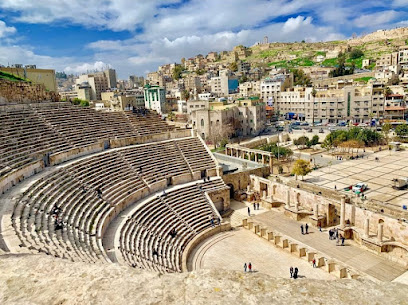
Roman Temple of Hercules
Discover the majestic Roman Temple of Hercules, an archaeological wonder in Amman, steeped in history and offering stunning city views.
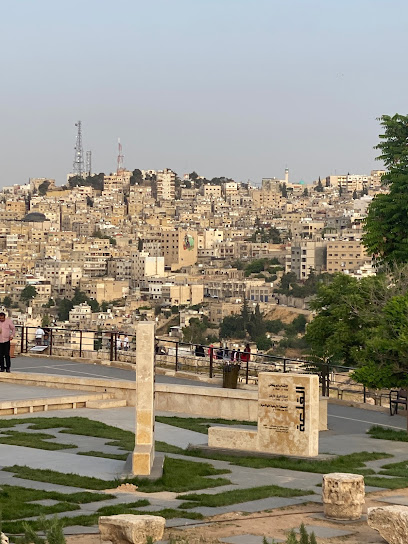
Rainbow Street
Discover the lively atmosphere of Rainbow Street in Amman, where culture, cuisine, and creativity come together for an unforgettable experience.
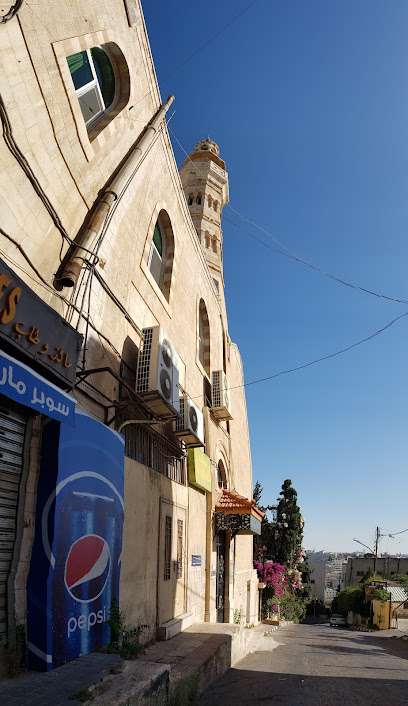
مطل جبل اللويبدة
Explore Mount Al-Luweibdeh Park in Amman, a tranquil escape with stunning views, lush greenery, and a perfect spot for relaxation and picnics.
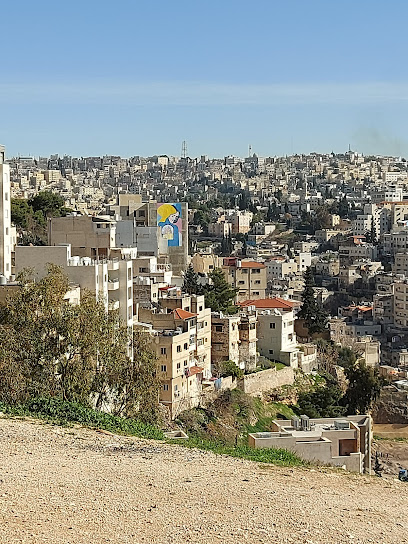
Jordan National Gallery of Fine Arts Park
Experience the tranquility and artistic vibrancy of the Jordan National Gallery of Fine Arts Park in Amman, a serene escape for art lovers and nature enthusiasts alike.
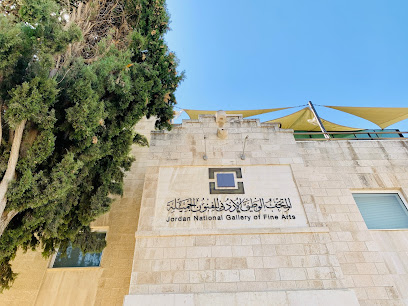
Viewpoint roman theatre
Experience the breathtaking views and rich history at the Viewpoint of the Roman Theatre in Amman, a cultural gem of Jordan.
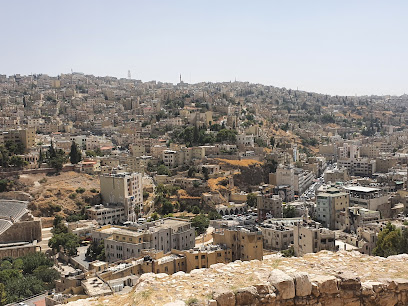
Underground Amman
Experience the artistic heartbeat of Amman at Underground Amman, where creativity, culture, and community come together.
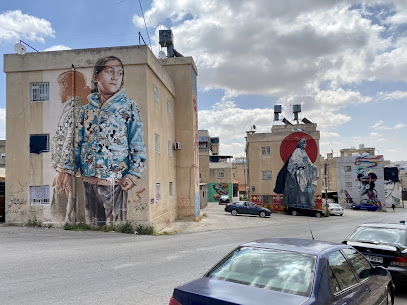
Umayyad Open Cistern
Explore the Umayyad Open Cistern in Amman, a historical marvel showcasing ancient engineering and the rich heritage of Jordan's past.
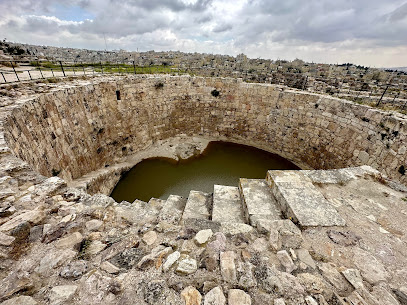
درج شارع عمر بن الخطاب
Explore the vibrant Omar Bin Al-Khattab Street in Amman, where culture, shopping, and delicious Jordanian cuisine come together for an unforgettable experience.
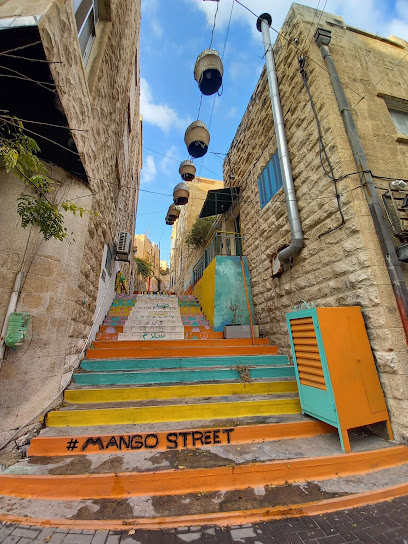
اثار جبل القلعة
Explore the historical depths of Jabal Al-Qal'a, a captivating citadel in Amman, Jordan, where ancient civilizations meet breathtaking views.
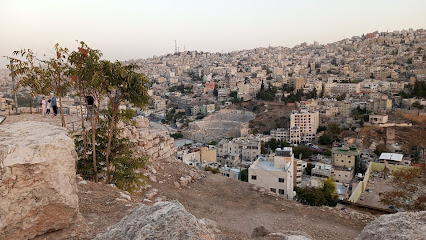
Early Bronze Age Cave
Discover the Early Bronze Age Cave in Amman, a historical landmark revealing ancient civilizations and archaeological wonders in the heart of Jordan.
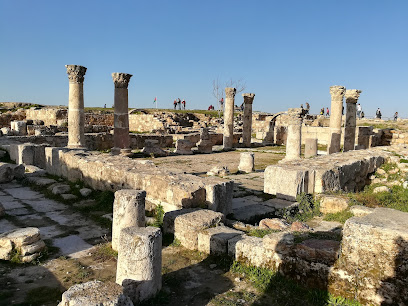
Umayyad House
Explore the Umayyad House in Amman, a historical landmark that showcases the fascinating architectural legacy of Jordan's ancient past.
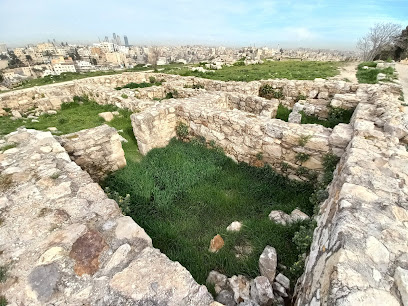
Umayyad Reservoir
Explore the rich history and serene landscapes at the Umayyad Reservoir, a stunning ancient landmark in the heart of Amman, Jordan.
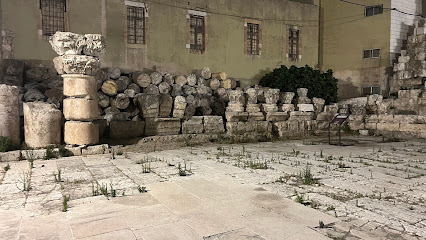
Unmissable attractions to see
The Jordan Museum
Explore the Jordan Museum: Discover the rich heritage and artistic treasures of Jordan in the heart of Amman.
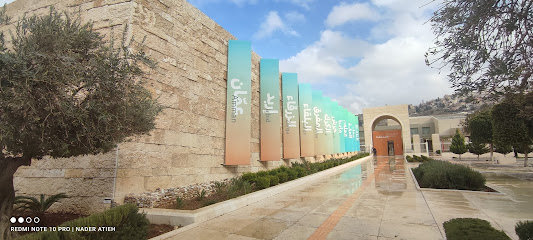
King Abdullah I Mosque
Discover the architectural splendor of the King Abdullah I Mosque, a serene symbol of faith and cultural unity in the heart of Amman.
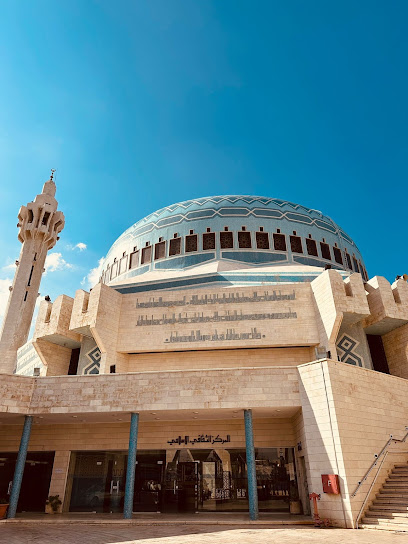
Umayyad Palace
Explore the Umayyad Palace in Amman, a stunning historical landmark that showcases the rich heritage of Jordan and offers mesmerizing views of the city.
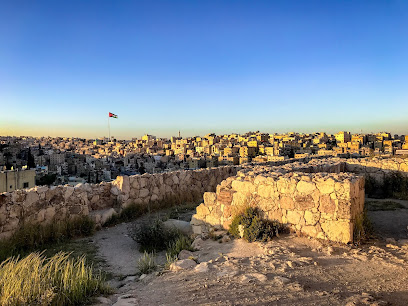
MURAL BIRDS OVER BRIDGE
Experience the vibrant Mural Birds Over Bridge in Amman, a stunning urban art installation celebrating nature's beauty and culture.

Essential places to dine
Mijana
Discover Mijana in Amman – A family-friendly restaurant offering delicious local and international dishes with a cozy atmosphere.
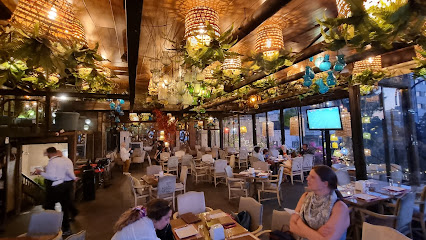
Fakhreldin Restaurant
Discover the rich flavors of Lebanon at Fakhreldin Restaurant in Amman – where exquisite cuisine meets warm hospitality.
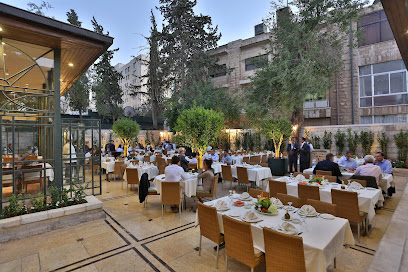
Levant Restaurant
Experience authentic Armenian cuisine at Levant Restaurant in Amman – where tradition meets taste in an elegant setting.
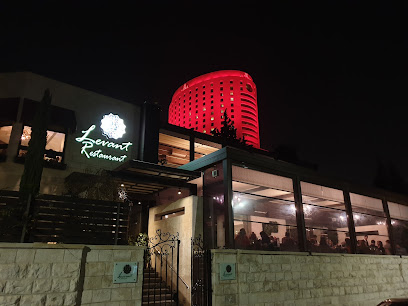
Sufra Restaurant
Discover authentic Middle Eastern cuisine at Sufra Restaurant in Amman—where every dish tells a story of Jordanian heritage.
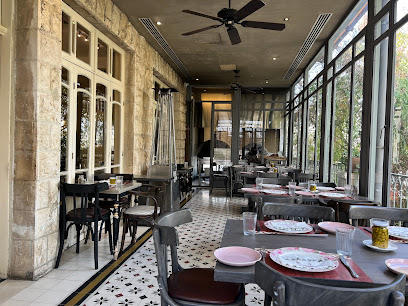
Wild Jordan Center
Experience authentic Jordanian cuisine at Wild Jordan Center while enjoying stunning views and cultural insights in Amman.

Romero Restaurant
Experience authentic Italian cuisine in Amman's cozy setting at Romero Restaurant - where every dish tells a story.
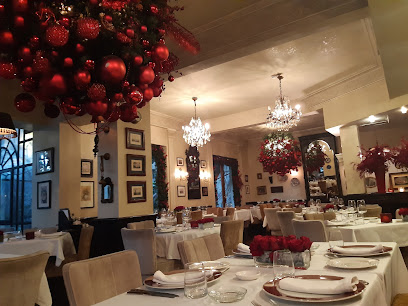
Fatatri فططري
Discover authentic Middle Eastern cuisine at Fatatri in Amman - where every meal is a feast for the senses.
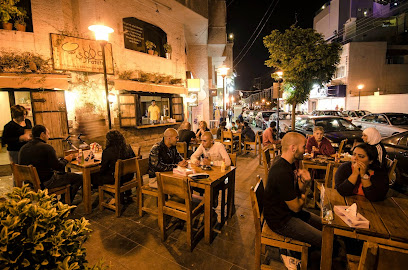
Chestnut Restaurant & Pub
Experience the essence of Jordanian cuisine at Chestnut Restaurant & Pub, where tradition meets innovation in every dish.
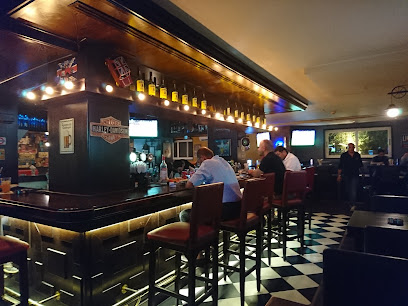
Sheen restaurant
Discover Sheen Restaurant in Amman: A perfect blend of traditional Jordanian flavors and modern culinary artistry awaits.
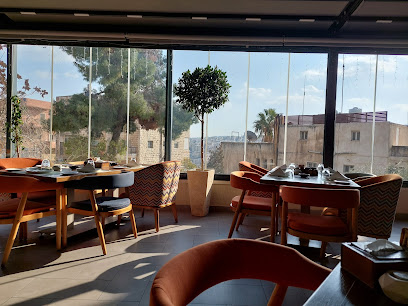
Totti's italian restaurant
Indulge in authentic Italian flavors at Totti's Italian Restaurant in Amman - where every dish tells a story.
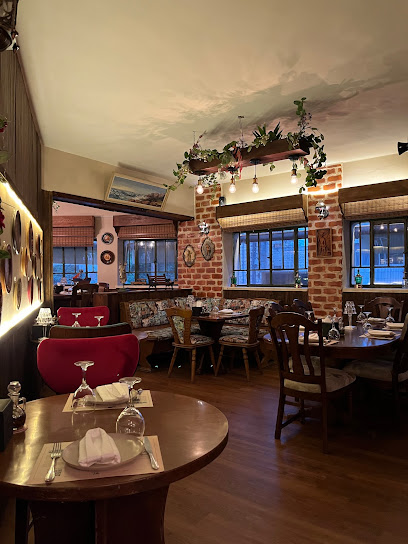
Markets, malls and hidden boutiques
Abdali Mall
Explore Abdali Mall in Amman, where shopping, dining, and entertainment converge in a modern urban oasis.
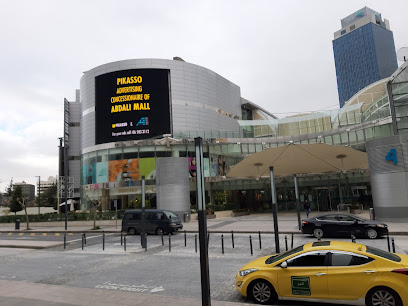
MostWanted Store DownTown
Explore a unique blend of traditional and contemporary gifts at MostWanted Store DownTown in Amman, a treasure trove for tourists.
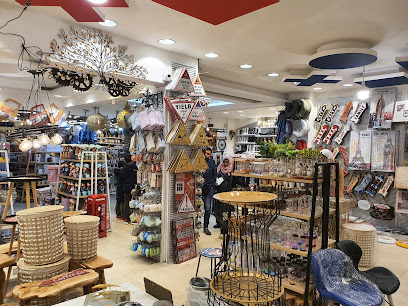
Jordan Craft Center
Discover the heart of Jordanian craftsmanship at the Jordan Craft Center, where art and culture collide in a vibrant shopping experience.
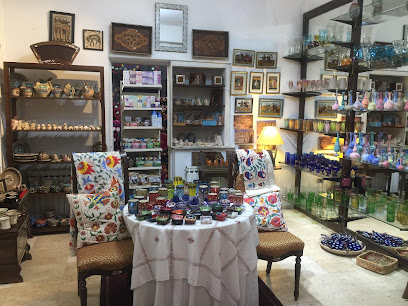
Jordan River Designs
Explore Jordan River Designs for authentic Jordanian gifts and handcrafted souvenirs that capture the essence of Jordan's rich culture.
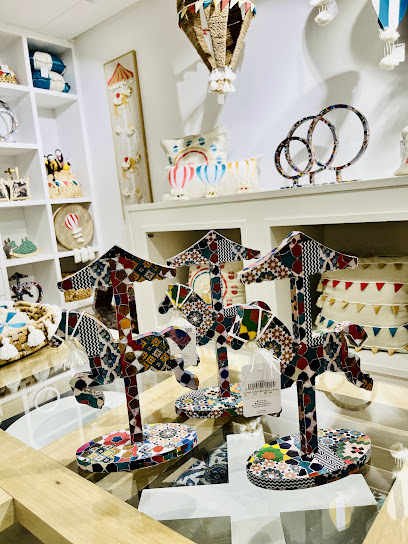
Jo Shop
Discover authentic Jordanian craftsmanship at Jo Shop, the premier craft store in Amman offering unique handcrafted souvenirs.
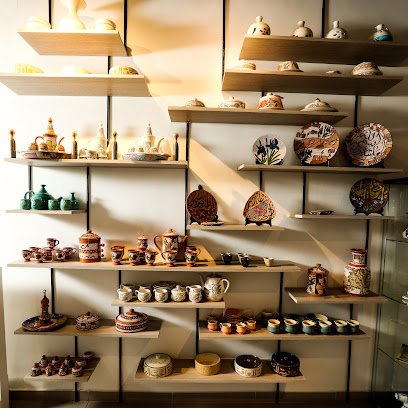
FNL Rainbow St. شارع الرينبو
Explore the vibrant FNL Rainbow St. in Amman, a unique gift and clothing shop showcasing local culture and style.
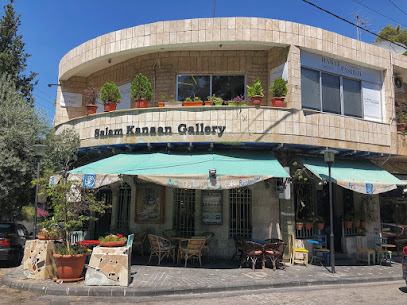
Love on a Bike
Explore the artistic charm of Love on a Bike, a unique gift shop in Amman offering handcrafted pottery and local handicrafts for the perfect souvenir.

Al Burgan Handicrafts
Explore Al Burgan Handicrafts for exquisite gifts, authentic Jordanian embroidery, and vintage treasures in the heart of Amman.
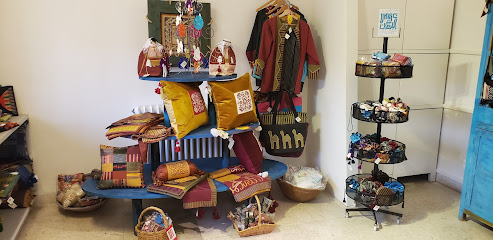
Bazar mashaal - بازار مشعل
Discover the vibrant charm of Bazar Mashaal in Amman, where unique antiques and souvenirs bring Jordanian culture to life.
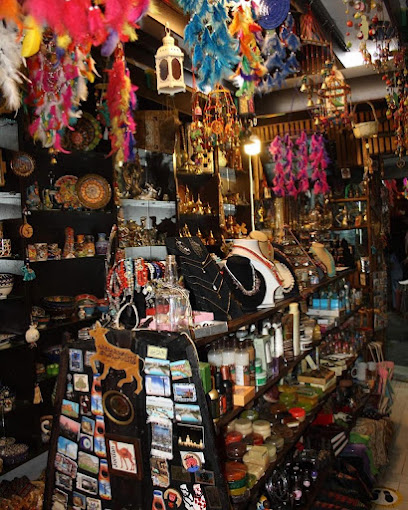
Souk Zara Souvenir and Handicraft shop
Explore Souk Zara for authentic Jordanian souvenirs and handicrafts in the heart of Amman. A cultural shopping experience awaits you.
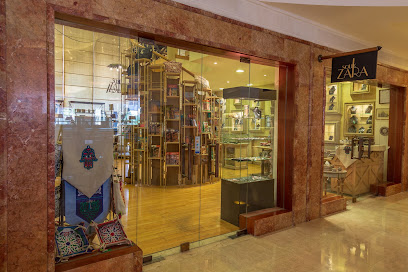
Essential bars & hidden hideouts
The Corner's Pub
Experience the lively spirit of Amman at The Corner's Pub, where friendly faces, great drinks, and unforgettable moments await.
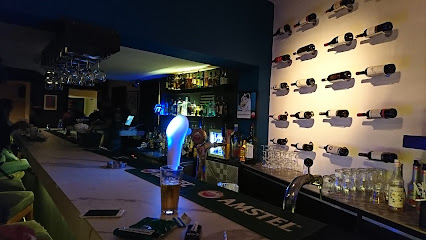
Cantaloupe Gastro Pub
Experience the perfect blend of modern cuisine and a vibrant atmosphere at Cantaloupe Gastro Pub, Amman's premier gastropub destination.
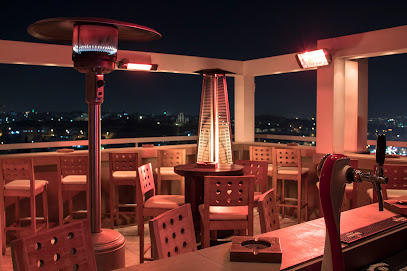
District Urban Rooftop
Unwind at District Urban Rooftop in Amman for sweeping skyline views, exquisite cocktails, and a vibrant nightlife experience under the stars.
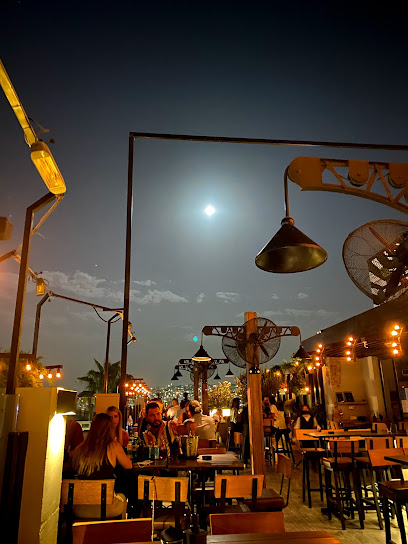
C.LING Rooftop
Experience stunning views and vibrant nightlife at C.LING Rooftop, the perfect blend of delicious food and unforgettable ambiance in Amman.
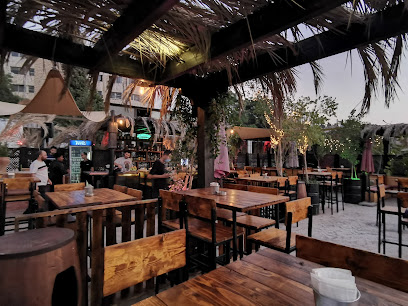
Sekrab
Discover the vibrant flavors and unique ambiance of Sekrab, a must-visit restaurant and lounge on Amman's Rainbow Street.
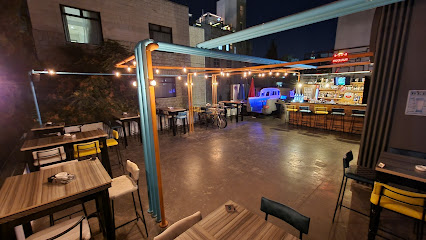
Alibi
Experience the vibrant atmosphere and exquisite flavors at Alibi, Amman's premier cocktail bar and restaurant, where every visit is an unforgettable culinary adventure.
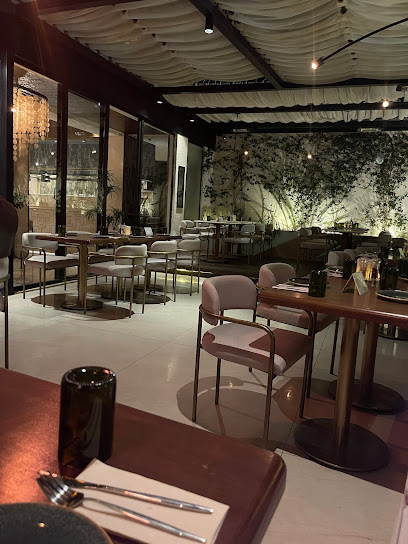
The Cellar
Experience the vibrant blend of music, food, and culture at The Cellar in Amman—your go-to bar for a unique night out.
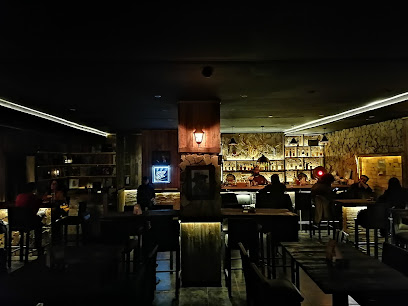
Las Tapas Latinas Bar
Discover the vibrant flavors of Latin cuisine at Las Tapas Latinas Bar, a lively pub and lounge in the heart of Amman.
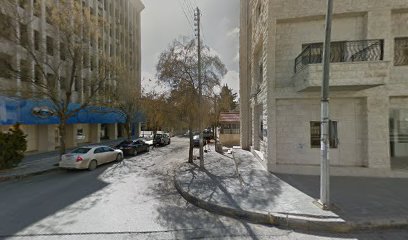
The Last Drop
Experience the vibrant nightlife at The Last Drop, Amman's premier lounge and bar offering exquisite drinks and delightful cuisine.
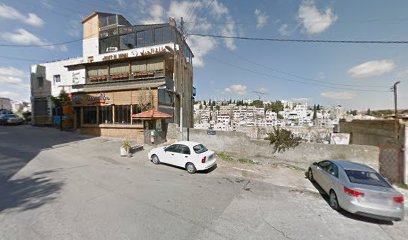
Cool bar
Experience the vibrant nightlife at Cool Bar in Amman, where eclectic drinks and a lively atmosphere await every visitor.

Local Phrases
-
- Helloمرحبا
[marhaba] - Goodbyeوداعا
[wada'an] - Yesنعم
[na'am] - Noلا
[la] - Please/You're welcomeمن فضلك/على الرحب والسعة
[min fadlik/ala al-rahb was-sa'ah] - Thank youشكرا
[shukran] - Excuse me/Sorryعذرا
['udhran] - How are you?كيف حالك؟
[kayfa halak?] - Fine. And you?بخير. وأنت؟
[bikhayr. wa'ant?] - Do you speak English?هل تتحدث الإنجليزية؟
[hal tatahadath al-ingliziyyah?] - I don't understandأنا لا أفهم
[ana la afham]
- Helloمرحبا
-
- I'd like to see the menu, pleaseأود أن أرى القائمة، من فضلك
[awad an ara al-qa'imah, min fadlik] - I don't eat meatأنا لا آكل اللحم
[ana la akl al-lahm] - Cheers!صحتين!
[sahatayn] - I would like to pay, pleaseأود أن أدفع، من فضلك
[awad an adfa', min fadlik]
- I'd like to see the menu, pleaseأود أن أرى القائمة، من فضلك
-
- Help!النجدة!
[al-najdah!] - Go away!ارحل!
[irhal!] - Call the Police!اتصل بالشرطة!
[itassal bialshurta!] - Call a doctor!اتصل بطبيب!
[itassal bitabib!] - I'm lostلقد ضللت الطريق
[lakad dalalt altariq] - I'm illأنا مريض
[ana mareed]
- Help!النجدة!
-
- I'd like to buy...أريد شراء...
[uriid shira...] - I'm just lookingأنا فقط أتفرج
[ana faqat atfarij] - How much is it?كم سعره؟
[kam si'ruh?] - That's too expensiveهذا غالي جدا
[hatha ghaali jiddan] - Can you lower the price?هل يمكنك خفض السعر؟
[hal yumkinuk khafdh al-si'r?]
- I'd like to buy...أريد شراء...
-
- What time is it?كم الساعة؟
[kam al-sa'ah?] - It's one o'clockالساعة الواحدة
[al-sa'ah al-wahidah] - Half past (10)الساعة العاشرة والنصف
[al-sa'ah al-ashirah wal-nisf] - Morningصباح
[sabah] - Afternoonمساء
[masa'] - Eveningمساء
[masa'] - Yesterdayأمس
[ams] - Todayاليوم
[al-yawm] - Tomorrowغدا
[ghadan] - 1واحد
[wahid] - 2اثنان
[ithnan] - 3ثلاثة
[thalathah] - 4أربعة
[arba'ah] - 5خمسة
[khamsah] - 6ستة
[sittah] - 7سبعة
[sab'ah] - 8ثمانية
[thamania] - 9تسعة
[tis'ah] - 10عشرة
[asharah]
- What time is it?كم الساعة؟
-
- Where's a/the...?أين ...؟
[ayn...?] - What's the address?ما هو العنوان؟
[ma huwa al-unwan?] - Can you show me (on the map)?هل يمكنك أن تريني (على الخارطة)؟
[hal yumkinuk an tureeni (ala al-kharitah)?] - When's the next (bus)?متى يأتي الحافلة القادمة؟
[mata ya'ti al-hafilah al-qadimah?] - A ticket (to ....)تذكرة (إلى ...)
[tadhkirah (ila ...)]
- Where's a/the...?أين ...؟
History of Jabal Amman
-
Jabal Amman, known for its rolling hills and vibrant atmosphere, has its roots in the ancient city of Rabbath Ammon, which dates back to the 13th century BCE. This area was once a thriving hub of the Ammonite civilization, known for its strategic location and fertile land. The remnants of ancient fortifications and artifacts discovered in the vicinity underscore its historical significance.
-
The early 20th century heralded a period of transformation for Jabal Amman as it became a center for a burgeoning middle class during the Great Arab Revolt. The influx of Ottoman officials and expatriates led to the establishment of many of the neighborhood's iconic buildings, including the Royal Hashemite Court and the historic houses that define the area today.
-
The 1920s and 1930s saw Jabal Amman develop a unique architectural style that blends Islamic and European influences, often referred to as 'Jabal Amman style.' This architectural heritage is visible in the neighborhood's charming villas, many of which feature intricate stonework and ornate balconies. Key examples include the Abdul Rahman Hall and the Jordan National Gallery of Fine Arts.
-
Post-1948, Jabal Amman became a melting pot of cultures due to the influx of Palestinian refugees. This demographic shift enriched the neighborhood's cultural tapestry, infusing it with diverse traditions, cuisines, and arts. The vibrant souks and cafés reflect this cultural blend, making Jabal Amman a lively center for social interaction and artistic expression.
-
In recent years, Jabal Amman has undergone significant urban development while striving to preserve its historical character. Initiatives aimed at maintaining the area's architectural integrity have been implemented, alongside cultural festivals and events that celebrate its rich heritage. The neighborhood continues to be a focal point for art, history, and community engagement in modern Amman.
Jabal Amman Essentials
-
Jabal Amman is easily accessible from various neighborhoods in Amman. Taxis and ride-hailing services like Careem and Uber are commonly used and provide a convenient way of reaching Jabal Amman from the city center or other districts. Public buses, while less frequent, also serve the area and can be a budget-friendly option. For those arriving from Queen Alia International Airport, taking a taxi or pre-arranged shuttle service is recommended, as public transport options are limited.
-
Jabal Amman is a walkable neighborhood, with many attractions located within a short distance of each other. For longer distances, local taxis are available. Public buses do operate but may require some familiarity with routes. Bicycles can be rented in some areas, but be cautious of traffic. Walking is often the best way to soak in the rich history and architecture of the area.
-
Jabal Amman is generally safe for tourists, but standard precautions should be taken. Avoid wandering alone at night in poorly lit areas, and keep an eye on personal belongings, especially in crowded places. Areas like some parts of East Amman may have higher crime rates, so it's advisable to stay vigilant and avoid these neighborhoods after dark.
-
In case of an emergency, dial 911 for police assistance and 199 for ambulance services. Familiarize yourself with the location of the nearest hospital; the King Abdullah II Hospital is a well-known facility in the area. Keep a list of emergency contacts handy, and ensure you have travel insurance that covers medical emergencies.
-
Fashion: Do dress modestly, especially in religious or traditional areas. Avoid revealing clothing. Religion: Do respect local customs, such as removing shoes before entering homes. Public Transport: Do be polite and offer your seat to the elderly. Don't eat or drink on public buses. Greetings: Do greet locals with a handshake and a smile. Eating & Drinking: Do try local dishes and accept food offerings graciously. Don't waste food or refuse hospitality, as it can be seen as disrespectful.
-
To experience Jabal Amman like a local, visit the Rainbow Street for its vibrant atmosphere and local eateries. Explore the rich history by visiting the Royal Automobile Museum and the Jordan National Gallery of Fine Arts. Engage with local artisans in Souk Jara, a vibrant market that operates during the summer months. Don’t miss out on the traditional coffee shops where you can relax and enjoy the local culture.
Trending Landmarks in Jabal Amman
Nearby Cities to Jabal Amman
-
Things To Do in Salt
-
Things To Do in Madaba
-
Things To Do in Jerash
-
Things To Do in Mafraq
-
Things To Do in Dead Sea
-
Things To Do in Irbid
-
Things To Do in Jerusalem
-
Things To Do in Beit She'an
-
Things To Do in Bethlehem
-
Things To Do in Ein Gedi
-
Things To Do in Umm Qais
-
Things To Do in Modi'in
-
Things To Do in Azraq
-
Things To Do in Kerak
-
Things To Do in Masada










